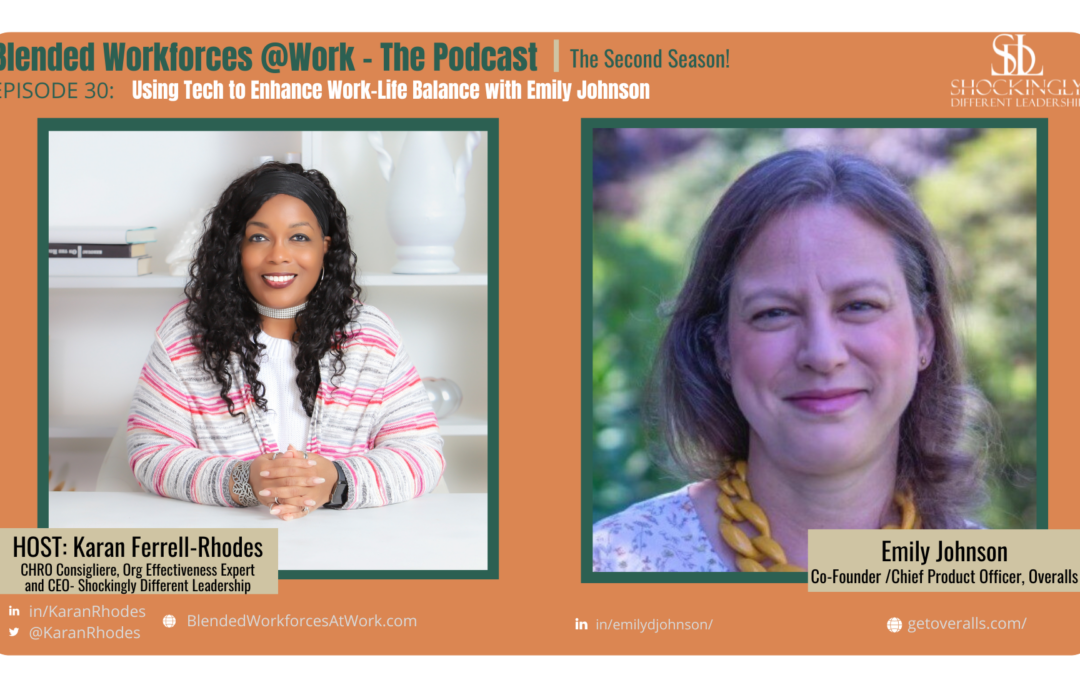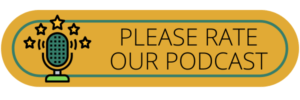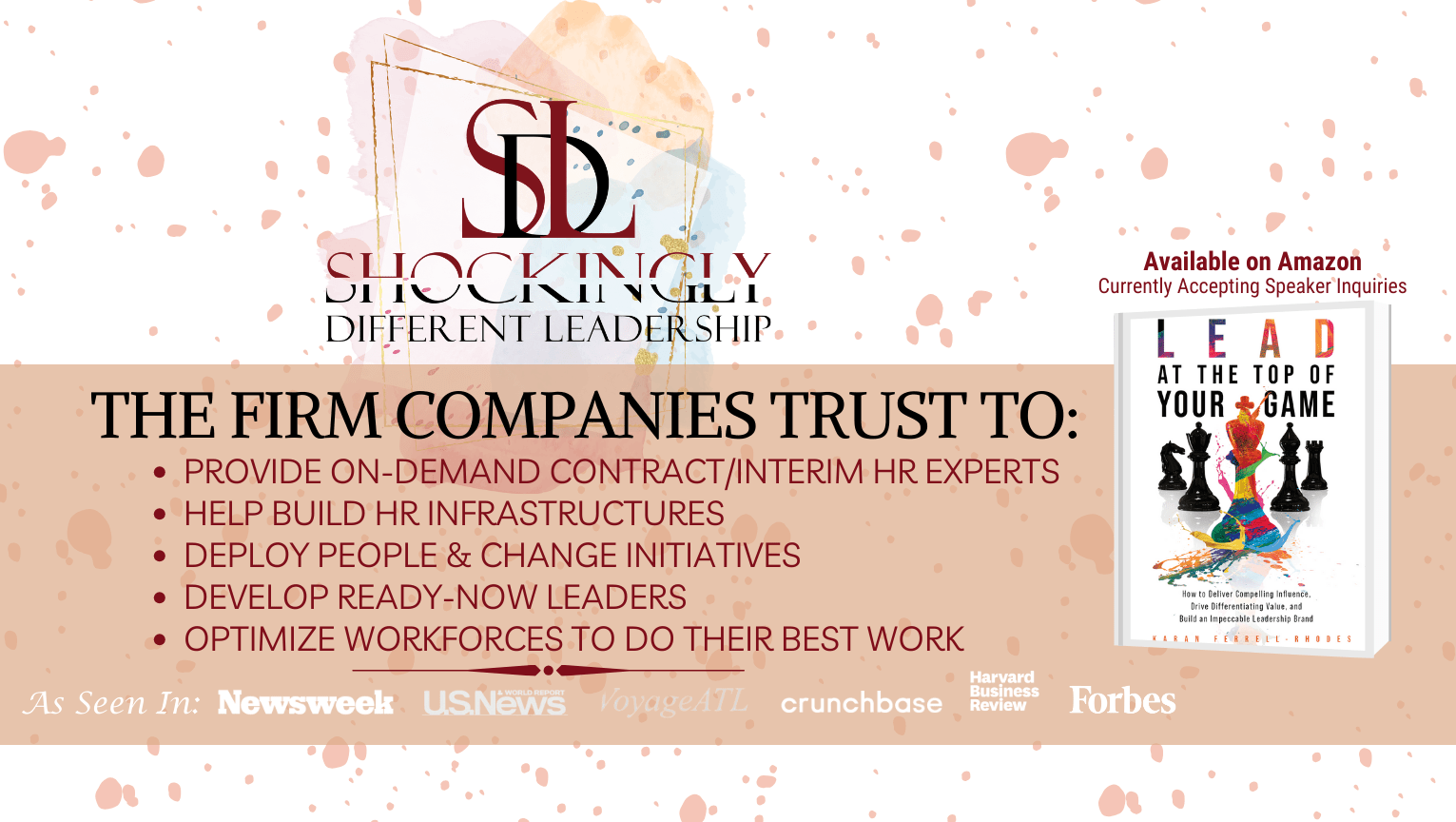IN THIS EPISODE, KARAN FERRELL-RHODES INTERVIEWS EMILY JOHNSON.
In this conversation, Emily shares her journey, the evolution of Overalls, and the power of human-assisted concierge services. She also discusses how she blends technology and human support to enhance employee well-being, the importance of entrepreneurial leadership, and challenges for women in tech.
Emily Johnson, Co-Founder and Chief Product Officer at Overalls is on a mission to simplify life’s complexities through tech-enabled concierge services. A startup veteran, she was the third employee at AppNexus, co-founded Tutorlist (now known as Selected), and led product teams at LearnVest, Haven Life, Fabric, and Dayforward.
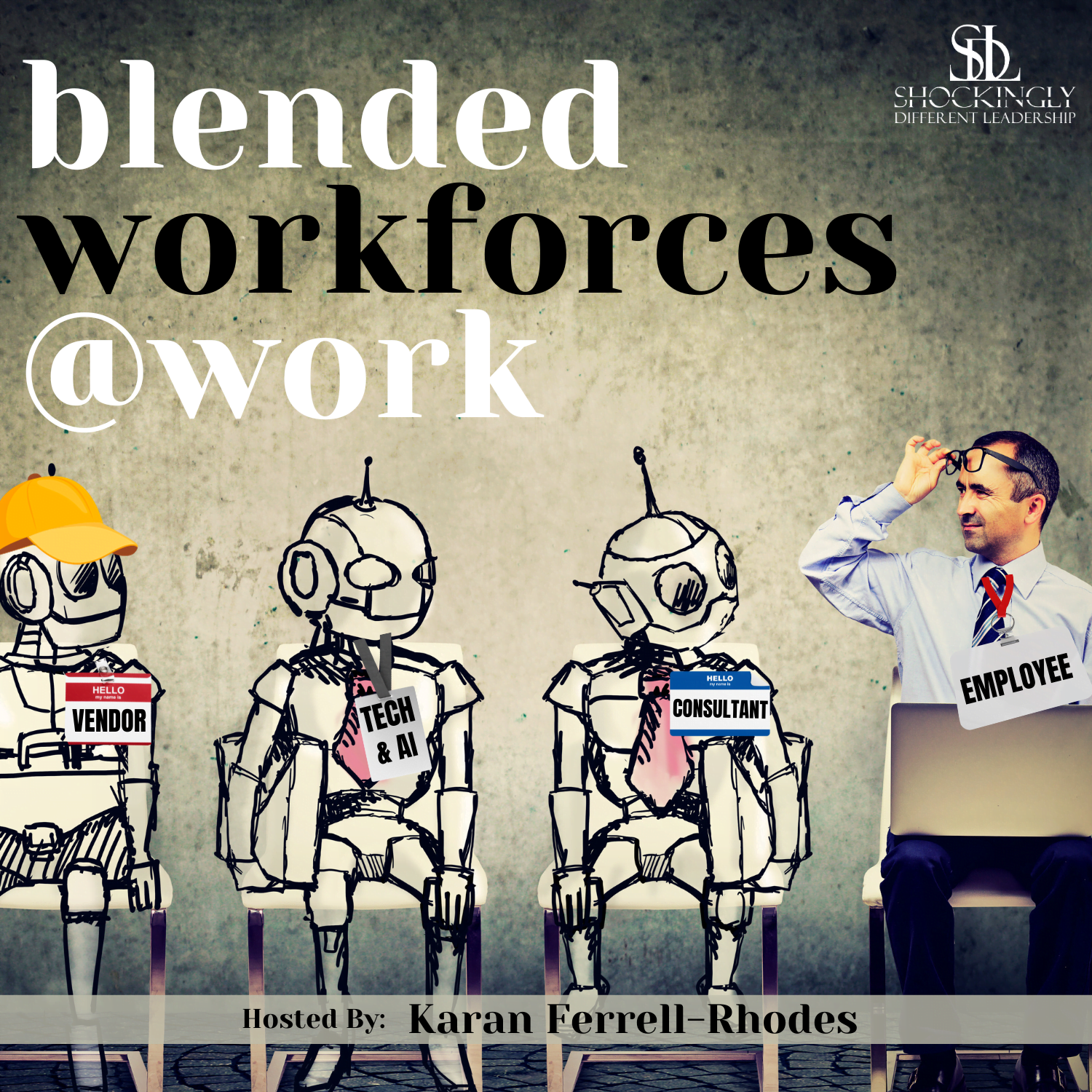
Posted by
SDL Media Team
Rather view our video podcast?

WHAT TO LISTEN FOR:
- How did Overalls evolve from an insurance wallet to its current model?
- What types of tasks do Overalls help with?
- Why is the human touch important in Overalls’ services?
- How is the Overalls team structured?
- How do employers and users benefit from Overalls?
- What challenges did Emily face as a woman in tech?
- How has tech culture evolved over the years?
- What is Emily’s approach to entrepreneurial leadership?
“People are so grateful to get a human to help them (when they can).”
FEATURED TIMESTAMPS:
[03:29] Emily’s Background and Personal Life
[04:59] Journey in Tech and Overalls’ Origin
[12:40] Signature Segment: Emily’s entry into the LATTOYG Playbook: The Human Touch in a Tech-Driven World
[17:21] Business Model and Market Strategy
[22:13] Challenges and Opportunities for Women in Tech
[27:02] Signature Segment: Emily’s LATTOYG Tactic of Choice: Leading with Entrepreneurship
[28:27] Contact Information

ABOUT EMILY JOHNSON:
Emily Johnson, Co-Founder and Chief Product Officer at Overalls, began her tech career as the third employee at unicorn startup AppNexus. She co-founded Tutorlist, now known as Selected (getselected.com). She has since led product teams at LearnVest, Haven Life, Fabric, and Dayforward, specializing in enterprise and direct-to-consumer products in the insuretech space. At Overalls, Emily leads product development with a mission to improve employee well-being through tech-enabled concierge services. She combines her enterprise and direct-to-consumer product management background with a passion for simplifying life’s complexities and empowering employees to thrive.
LINKS FOR EMILY:
- Company:getoveralls.com
- LinkedIn: linkedin.com/in/emilydjohnson/
- Instagram: instagram.com/getoveralls/
ADDITIONAL RESOURCES FOR YOU:


Episode Sponsor
SDL is the go-to firm companies trust when needing to:
- supplement their in-house HR teams with contract or interim HR experts
- implement leadership development programs that demonstrate an immediate ROI and impact on the business

Episode 30 | Using Tech to Enhance Work-Life Balance with Emily Johnson
Emily Johnson 00:00
And then too, I think, you know, the use of technology is really interesting here, because, you know, we can’t possibly have on call experts in every single detail of every single area of life. Like we can’t have somebody who knows all about plumbers in Cleveland, you know, on staff. So we have to have ways to, like, access that information, keep that information up to date, double check it, like, share it with the team. And that’s the place that we’re really spending our energies with technology is sort of building out those, like, knowledge bases and tools to help our team, like, execute.
Karan Rhodes 00:03
Blended workforces are one of the hottest talent strategies today, where employers are using a mix of traditional employees with external resources like independent contractors, coaches, consultants, vendors, and technology solutions, all in order to enhance competitiveness, ensure cost flexibility, and expedite business goals. But how are the successful companies infusing blended workforces into their business strategy? And what are the critical success factors and pitfalls to avoid during implementation? And on the flip side, what does it really take for suppliers to improve their chances of finding and landing contract opportunities? The devil is in the details, my friends! I’m your host, Karan Ferrell Rhodes, and it’s time to get smarter about Blended Workforces at Work!Hey there, my superstars, welcome back to another episode of the Blended Workforces at Work podcast. You know, we have a tremendous show in store for you today. As you know, the way we define blended workforces, that whole equation involves traditional employees, vendors and suppliers and technology, anyone who touches the way of how the world of work gets done. And today we have a fantastic example, a company who you helps to use technology to help employees themselves become more efficient and less have less overwhelmed and just make their lives better, which in turn reaps benefits for employers so they actually touch multiple sections of the blended workforces face, and we’re thrilled to feature today Emily Johnson, who is the co founder and chief product officer at Overalls, which is a company which provides a service called Life concierge. And when I tell you, all of us need that, that’s all of us need that, including me, but life concierge is designed to save employees time by tackling, you know, life’s complicated and time consuming tasks that create some of that overwhelm and stress and takes a serious toll on productivity, which in turn affects employers. And I know I probably did not do it anywhere in justice explaining what the company does, but we had a chance to read over the company website and overview and what they’re doing. I just knew we needed to have Emily on the show. So welcome to the show, Emily,
Emily Johnson 02:30
Thank you. It’s so nice to be here.
Karan Rhodes 02:32
Oh, we’re such an honor to have you. I can’t wait to dig into your company and how it serves the world of work, if you will. But before we do so, we always love to learn a little bit more about our guests. So for just as much as you feel comfortable, would you mind giving us a sneak peek into your life outside of work?
Emily Johnson 02:52
Sure. So I am a busy mom. I’ve got a 10 year old and a seven year old, and I live outside of New York, so try to get into the city as much as I can. But you know, do live in the world of children as well. And a lot of people find it interesting that before I was in tech, I was a writer, I was a journalist, and I did an MFA in Creative non fiction writing ended up sort of serendipitously landing in tech about 15 years ago, so I have been trying to get back to writing a little bit lately and make time for that.
Karan Rhodes 03:22
Wow, multifaceted you are, I tell you, that’s amazing. And what good ages for your kids. I bet you’re enjoying life and trying to juggle all of their schedules.
Emily Johnson 03:34
Yeah, they’re fun, but it’s definitely going from the pandemic to, you know, now it’s with we had nothing scheduled to constant scheduling.
Karan Rhodes 03:43
What a change. What an evolution.
Emily Johnson 03:45
Yeah,
Karan Rhodes 03:45
Well, good. Well, you’re still smiling for the end, for those who are watching on the YouTube channel, and so you’ve lived this to tell the story as of now anyway. Well, wish you great thoughts ongoing to help balance. But yeah, we’re absolutely thrilled to have you on the show today. So let’s start out, Emily by you just giving a high level overview some of your experiences before overalls. And then let’s transition into what overalls is, what they actually does, and how IT services a variety of areas in the world of work,
Emily Johnson 04:19
Sure, so the world of tech is a little bit, I guess, chaotic, maybe to people outside. You know, my in laws are New York City teacher and subway employee, and so, you know, the same job for 30 years, and you retire with a pension. Like I said,
Karan Rhodes 04:34
That’s tech…
Emily Johnson 04:35
Yeah. I mean, it’s amazing. Now, my mother in law is in Antarctica currently, literally,
Karan Rhodes 04:40
Oh, wow,
Emily Johnson 04:41
Yeah, traveling the world. But so I joined a company called Apnexus, which was an ad tech company in New York, and it was one of the first big New York startup success stories in 2008 and I was in ad tech for a while, and then, you know, have done a variety of things, but landed in, I’m really in. Interested in personal finance, and which is actually really related to overalls, because it’s an area where, you know, it’s a really confusing, complicated world of, like, how do I manage my money? How do I build wealth, how do I save it? Like, what tax breaks are there? And I feel like people are really sort of just left on their own to handle it. And so that’s one of the many areas where overalls wants to help. But so through that, I got into digital life insurance, and so worked on building out, making it really easy to get access to term life insurance, which is another product that people really need but don’t know that much about. And so I ended up connecting with overalls was started by a venture capital studio, which is just, you know, instead of us going and building a company in our basement on the side, and then going out and raising money, the venture capital studio looks at various market opportunities and business ideas and does some research and groundwork. And then if they decide there’s an opportunity, there they go out and they create a founding team. So I joined them before the company was officially founded, and it was really started as an insurance wallet, actually. So the idea was, yeah, I mean, in some ways it seems like a weird shift, but then we keep coming back to the same themes we had from the start, which is interesting. So we started out as you go to work and you get your health insurance, and that’s the vast majority of your benefits that you’re really like focused on and looking at and using and understanding, but then you have this hodgepodge of other benefits, like, like life insurance, accidental death and dismemberment, you know, just all kinds of weird stuff that maybe you have to opt into and pay for. Maybe you get it for free, but you don’t really know what it is, and you don’t know if you should buy it or when you lose it. And so we were going to be a digital insurance wallet that offers those supplementary, voluntary, you know, benefits as like a much easier to understand and consume package. And then also, you can add on your personal insurance, like your home auto life insurance outside of work, and make sure that you’re sort of appropriately covered, not paying too much, not under covered. So you look at it holistically, all in one, yeah, and I still love that. I love it. But we had a feature that we called hassle helpers, where we would help you make claims. You know, we’d help you understand when a claim was, you know, like, I broke my arm. Does my, you know, accident insurance cover that, and how do I make the claim, and where do I get the paperwork and all that kind of stuff. But in addition, we would help you with things like, I need to find an orthopedist to go to for my arm, or a tree fell on my house. I need to make an insurance claim. I also need to get the tree removed and get my fit, my chimney fixed, and who do I call for that? And so when we went out to the market to employers, a lot of them were like, yeah, yeah, insurance is fine, but I’m overwhelmed by health insurance, but this hassle helper thing is really cool. Can I just have hassle helper? Wow? Like, no, you can’t, because it’s like package. And after we heard that enough times, we said, okay, that clearly there’s a real need here. And we pivoted, changing the name to life concierge, because it it was more than just hassles, right? It’s trying to help you with all kinds of areas of your life and so and really just focused on, how do we help people solve problems, answer questions, get help, get things done, get things off their plate. And the weird thing about us, least weird to me, there’s two weird things from from my perspective, one is that this is the first time I’ve really been part of a tech enabled services business, as opposed to really, like a pure technology play, which has been really interesting and very related to blended workforces. And then second, we just help with such a wide variety of stuff. So for example, we actually had somebody who had a child surgery canceled because the hospital fell out of network with the health insurance company, and we were able to work with the hospital to get it back into network, like, to get it back into compliance so that the surgery could continue. So really, like, major things, you know, we had somebody whose child was diagnosed with a severe learning disability, and, just like, didn’t know where to start, and doing research and understanding the problem and getting help. But then we also have things like, I want to plan my 30th birthday party, or I need a gift for my uncle, or, you know, stuff like that, which is, doesn’t really like affect your life necessarily, but it’s just stuff that you need to get done and that is distracting. We also help with a huge variety of topics. So like I said, personal finance is a big one, mostly because I’m so passionate about it. Yeah, I mean, I just, it’s just unbelievable. Like, we have a huge number of I have an old 401, K from an old employer, and I have no idea where it is. And, like, you know, I mean, that’s a big deal, and it is list that it’s so hard to figure out. So we help people find them, get them rolled over somewhere. Just like, I need to know about tax credits for my electric vehicle, stuff like that. And then we do a lot of the medical billing that’s real popular. We do a lot of travel, ton of travel requests. We do a lot of like finding child care, managing child care, a lot of sandwich generation. You know, I need to find a home health aide for my parent. I’m navigating Medicare. Where do I go? And on one hand, I think you. Mentioned, like, you’ve heard of companies sort of trying to do what we’re doing, but maybe, like not doing it in the sort of way we’re doing it. I think, one, because we sort of organically evolved to this point, like I would never have been able to conceive of overalls from scratch the way it currently exists. And I think it just evolved in a really natural way that ended up making sense. And then two, I think, you know, the use of technology is really interesting here, because, you know, we can’t possibly have on call experts in every single detail of every single area of life, like we can’t have somebody who knows all about plumbers in Cleveland, you know, on staff. So we have to have ways to, like, access that information, keep that information up to date, double check it, like, share it with the team. And that’s the place that we’re really spending our energies with technology is sort of building out those, like, knowledge bases and tools to help our team, like, execute. That was very long winded, so, sorry.
Karan Rhodes 10:59
No, it was very helpful, though. I was sitting here taking notes, so as you were talking and a couple things popped out for me. One, it took a half a second, but then you finally listened to the market when they kept telling you, we want that hassle. I forgot what you call the hassle. I’m sorry,
Emily Johnson 11:17
Hassle Helpers. Our CEO loves alliteration,
Karan Rhodes 11:21
Hastle helpers
Emily Johnson 11:22
Yeah.
Karan Rhodes 11:22
And then realize, boy, this could be a spin off the, you know, service, not spin off a deep service that is meeting the need for the market. And then two, using technology to help with some of that sourcing. Because, to your point, you’d have to hire 1000s and 1000s and 1000s of people if they had to research it on their own. But leveraging technology to expedite that would be great. And I’m curious about how you all do staff. Do you just depend upon technology, or do you have leads in like a major area, like a lead over financial inquiries that come in. How does that really work?
Emily Johnson 12:04
So we’re really committed to keeping humans in the loop. We do not want to automate away the human and what one reason? There’s a few reasons for that, but one big one is that we really find that people are just so grateful to get like a human who is willing to help them, which, I mean, it’s a bummer. But like, you know, there’s an article in New York Times, in New York Times today about how, like, you know, even having like, a chaplain come visit you in the hospital is such a luxury, because it’s like a real human who like, shows up since you and so even when we’re not able to solve something. So for example, let’s say there’s an insurance bill that ultimately we just can’t, like, it’s not resolvable. It’s just, like, Isn’t resolvable. We see that people really appreciate just having somebody like on the journey with them and like, making sure they’ve exhausted their options. And two, we just think humans are going to do like a better job. And so we have full time life concierge team of people all in the US all sort of, various backgrounds, various specialties. And then in addition to that, we have an what we call the life concierge network, and that, actually, it kind of started with, like Mom, friends of myself and Allison, our Chief Operating Officer. So we knew a lot of people that had had careers and were now, you know, staying home with kids, either permanently or apart, like for a few years, who had really specialized skills. So we have somebody who’s an expert in elder care. We have someone an expert in HR related stuff, so they’re able to, like, use their skills, like they they have these skills, they have this knowledge, and they want to put it to work. But there’s no sort of, like, good place to do that, right? So we started recruiting those folks and saying, Look, you can do this job, like, when you want, you know, part time, that kind of thing. And that actually worked out really well. So we’ve expanded that network. It’s not just moms, but it’s all kinds of different people who are re entering the workforce or looking for part time work. Or we have some people that are retired, and they’ll take, like, specific categories of requests, yeah. And then in addition, we have what we call overalls experts, so those are people we can call for specialized questions. So if it’s like a specialized legal question or financial question or whatever, we have folks that we can send the question out to, we don’t expect the life concierges to necessarily be able to answer like, really sophisticated specialty questions. And so that’s our team right now, and on the tech side, what we’re really trying to do is make those folks as efficient as possible. And then also, eventually, probably there are certain kinds of requests that we could automate and say, like, if it’s, you know, within this bucket of stuff, right? Maybe you get the option of, of just taking the Self Service automated version or escalating it to a human. And then another thing that we’re focused on is, and this is where I’m saying we’re coming back to sort of our initial vision. Like it keeps popping back up. I keep going into my files and being like, Oh, here’s that design from, you know, three years ago. Like, so relevant, really helping people make use of their benefits. So right now, again, like, benefits are still confusing, and you maybe you have an internet or maybe you have a PDF. If, like, literally, I looked at a benefits PDF the other day, and there was a whole page that just talked about how you should drink more water. And so it’s like, you know, this 40 page document that you have to read through, including, like, a whole page on drinking water, water, yeah, figure out, like, how do I, you know, do I have access to any, like, legal consultations or something like that? So we’re really starting to be a hub for, like, understanding and making use of your benefits, especially those sort of secondary or like, niche benefits that you have. And that’s a place where technology is super helpful, because we can ingest information about benefits and organize it and surface it and say, like, Okay, are you do you have children? Well, then, you know, here’s some benefits that might be relevant to you, those kinds of things, both for the life concierges to use and potentially for the end users to use too.
Karan Rhodes 15:46
I love that. I know one of the folks we interviewed was a company that used AI to help with company handbook and resources. I mean, there’s a lot of them out there, but we had interviewed one which was something similar, they had a knowledge base for the more common, repetitively asked questions, but then, you know, for the details, you could escalate to an actual person to actually talk to, but it actually decreased the inquiries about 60% because they could get, You know, the basics from that tech solution that they implemented two quick things that popped for me when you were just talking. One, I noticed on the website you asked that the the inquiries that folks have be meaningful inquiries. Not just can you reserve a table a local restaurant, it needed to be something a tad one step above that versus Is that still true?
Emily Johnson 16:44
I mean, we’ll do any requests, like, if you ask us to reserve a table, we’ll reserve a table. That’s not a problem. There’s two things. One is, we’ve really found, like one for the business model to work. You know, if you’re doing sort of like day to day basic tasks, those are going to happen a lot more frequently and be a lot more sort of resource intensive, and you’re going to end up having to hire, like, very low paid people, either offshoring or, like, paying people really low wages here. And like that is just not like. That is a thing that maybe many of us need and would like to have, but it’s just we didn’t see it as like. We saw, like, there was a mismatch between the actual cost of that service, yeah, either ROI to do that, yeah. And really, like, treating your staff as a real cost center at all, you know, and trying to, like, I don’t know, it just, it just didn’t really work out.
Karan Rhodes 17:37
No, It makes sense. It totally makes sense. I was just trying to help the listeners clarify, you know what, what…I mean. It’s great to hear that you would do that, but some of those really meaty, intense type of things that really are impacting your work, it would be best used for that.
Emily Johnson 17:47
And they don’t have to be like, life changing, like, again, like the 30th birthday party. We’ve done a ton of like, I need to find bridesmaids gifts.
Karan Rhodes 17:57
Oh, yeah.
Emily Johnson 17:58
It’s just like, we’re not like, we’re not an instant response either. Like, we’re trying to really devote our resources to just like, kind of that next level up of complexity or knowledge or attention, and so we’re not like a day to day personal assistant, like, personally, I think that’s something that’s going to get automated. You know, already a lot of folks are doing, like, starting to automate it, and I think within a couple years, it’s going to be fairly successful. I think we’re really looking at the stuff that’s just a little bit harder, a little bit more complex, a little bit more annoying or frustrating or confusing.
Karan Rhodes 18:30
Yeah, I think that’s a great way that you all are differentiating yourselves, and it will probably have a lot longer runway than just the kind of personal assistant type of things. Now, question I had was, do you sell the service just to employers, part of a additional benefit, or can a lay person sign up?
Emily Johnson 18:53
Yeah. Our main distribution is through employers, and the reason for that is one we’re always looking for kind of win, win, wins whenever possible. So,
Karan Rhodes 19:01
Sure.
Emily Johnson 19:02
You know, like you said, I mean, we really do see, like, a huge level of distraction and stress at work that, you know, we’re never going to take away 100% but if we can make a dent in that, then that’s really valuable to employers as well as employees.
Karan Rhodes 19:14
Yeah.
Emily Johnson 19:14
So that’s one piece of it, and the other piece is, again, on the on the financial model. Like, you know, we have really high engagement rates for a benefit. You know, we’re seeing 50, 60% registration and usage rates, which is high for a benefit. Yeah, but when you have an individual user like, they’re far more likely to just like, they’re going to use it 100% of the time, and they’re going to use it super frequently. And again, you kind of have to charge a significant amount for that. And so there’s a little bit of that sort of business model of almost like health insurance, where you know, if, like, a lot of people are using it and getting a great experience, that’s great, and you’re subsidizing that a little bit by the folks that haven’t used it, we are very explicitly finding ways to make sure. We want to encourage usage, and we want, like, as much usage as possible. Like, we always want to align our incentives with the employers, incentives, with the users, incentives, with the life concierges incentives. And I think that’s one thing that we’re really skilled at as a team. But you can technically buy an individual account. We used to have it through the website. I can’t remember if we still have it up there, but technically you can we just it’s not a distribution channel. We’re really focused on
Karan Rhodes 20:24
Gotcha. And is it considered for the employers that pick it up? Is it considered a voluntary benefit where they would sign up and then the employer would employee would pay a premium? Or is it incorporated into their standard benefits, and the employer just covers the cost, and you just manage the utilization?
Emily Johnson 20:48
Yeah, right now it’s the employer covers the cost. It’s a per covered participant model, and employers seem to be pretty happy with that.
Karan Rhodes 20:55
No, I think it’s a fantastic model. That’s why I’m so curious about it as well. I wish I had that when I was in corporate, so it’s a fantastic service. Well, gosh, time is flying by, but I would be remiss if I did not ask you questions about your story is being a female in tech. And I, you know, my listeners know I worked for Microsoft for almost 14 years and have consulted with a million tech companies,
Emily Johnson 21:23
Yeah,
Karan Rhodes 21:23
Literally in a consulting space. But how has your journey been? What would you love to share about this, the struggle of a female especially in a high growth tech firm, helping to co lead a high growth tech firm?
Emily Johnson 21:37
I would say it’s just gotten leaps and bounds better. So I started in tech in 2008 and there were very few women,
Karan Rhodes 21:44
Yeah,
Emily Johnson 21:44
Portion of the business. So I was a product manager, and I would always go somewhere and they’d say, Oh, are you in in marketing? You know, marketing is great, but they just assumed, because I was a woman, I wasn’t an engineer or a product manager on the technical side of the business. And I think the people I interacted with on a day to day basis were always great, like the other engineers, but it was just sort of this assumption that, like, women didn’t know technology, or weren’t interested in technology, that was, that was tough, and it was also kind of a, you know, in the early days of the, I would say, the second startup boom, after the.com era, it was much harder to start a company. Now there’s so many third party servers. You know, when app Nexus was started, you couldn’t rent server like, Amazon’s cloud services were just getting started,
Karan Rhodes 22:29
I remember. Yeah,
Emily Johnson 22:30
People had server closets. They had physical closets, like in their living room with servers
Karan Rhodes 22:34
I remember!
Emily Johnson 22:36
Yeah. And so I think in order to start a business in that world, you have to be like, you know, you always have to be a little bit oblivious or not oblivious. But like, you know, have a little disconnect with reality to start a company, because most companies fail, and it takes a lot of work and effort,
Karan Rhodes 22:52
Yeah,
Emily Johnson 22:53
But I think then you had to have even more of that. And it tended to be like, more sort of aggressive bro culture, who was like, I’m gonna rule the world.
Karan Rhodes 23:01
Yeah, yeah.
Emily Johnson 23:04
And I, I mean, I don’t know if, if it’s changed as much as I think it’s changed, or if it’s just that I’ve changed, and I’ve gotten, you know, more senior, but, uh…
Karan Rhodes 23:12
I think it’s changed, because I work with a lot of high growth tech companies, helping them build their people infrastructures, and I think it’s changed now, I won’t say it’s all gone away,
Emily Johnson 23:21
No.
Karan Rhodes 23:22
But that environment has definitely evolved,
Emily Johnson 23:25
Yeah, oh, 100% I mean, and I think, you know, there’s so many more women just in tech, women engineers, women product managers. There’s more women executives. And then I will also say that, like, you know, I do think you have to kind of pick the company culture, yeah, that works for you. I mean, like, John, our CEO is like, hey, we work really hard, and we need to move fast and we need to get things done. But also, like, if you’re like, I have to take my kid to a pediatrician appointment at two o’clock, no big deal. Like, no one’s gonna bat an eyelash. And I think that one, I do think also the pandemic helped with that. I mean, I think before the pandemic, especially, women would never put on their calendar, like, leave for kids, choir, concert, like, important meeting with an officers or something, you know, and you wouldn’t admit that you, like, had kids, or, like, liked your kids.
Karan Rhodes 24:13
You just worked it in in some kind of way,
Emily Johnson 24:15
Yeah, yeah, you’re like, No, all I care about is work. And I think during the pandemic, we just got to see into everybody’s houses. And like, you know, it just became more normal to admit that you had children, and maybe you like them, and maybe like you care about your job and love your job and do a great job, but like you also like your kids,
Karan Rhodes 24:33
Yep.
Emily Johnson 24:33
And for me personally, that’s just been like a huge relief. And I’m just trying to make sure that we keep that, you know that we don’t, like again, obviously, like, we work really, really hard, and we love our jobs, but like, making sure that we keep that level of support in that culture at our our company as we grow,
Karan Rhodes 24:50
I love that, and I think it’ll be very important. It seems it’s like it’s really in your, you all’s DNA, especially with your, you know, your lead concierges and all that kind of stuff. It is built in and it’s embraced, and I’m so happy that it’s working fantastically for you all. So keep it up. Keep up the great work. Well, unfortunately, we’re running a little bit short on time, but I cannot let you get out of here. Emily with without answering our signature question, as you are aware, I wrote a book on some of the critical success factors of top leaders across the globe, and it was based on research that we had done, and out of it came seven tactics that every exemplary leader made sure that they focused on. And we always love to ask our guests, because no matter where you work, whether it’s in a startup or at a corporate employer or wherever you always are having to be a strong leader in what you do and where you show up. So you were so kind to share that leading with entrepreneurship really resonated with you. All seven are applicable, and you use them at different times, but we always love to see which one really popped for you and for my new listeners, leading with entrepreneurship is all about building up the whatever organization or environment that you’re working in, empowering it by identifying new opportunities to improve operations, products, services, or, you know, resources that they have. It’s all about innovation and making things better. So curious minds wants to know, Emily, why did entrepreneurship really pop for you?
Emily Johnson 26:29
I think that, you know, especially in a startup environment, but all in all environments, you know, it’s not enough for a certain group of people at the company to be thinking entrepreneurially, like and as a leader or a manager, I really like to make it clear what the goals are, and you know if there’s any constraints, but then say, All right, it’s up to you guys to get us there. So if you’re using a process or a spreadsheet or working on a feature, and you feel like there could be an improvement, I really want to make sure that the team is empowered to make those kind of micro adjustments throughout the organization, and I think that results in a much better like a more efficient organization, and just a much better product.
Karan Rhodes 27:04
I love that, and it also gives everyone an opportunity to be heard or shared. It doesn’t mean you adapt everything everybody recommends, but it brings into the consciousness ways to continuously do things better, offer better services or please your clients and customers, and that alone is just gold, in my opinion.
Emily Johnson 27:25
Yeah,
Karan Rhodes 27:26
Well, Emily this has been such a joy and pleasure chatting with you. We will have information such as your bio links to where they can find the company and learn more about you and what you all are doing in the show notes, but we always love to give air time for you to be able to share as well. So can you share where people can find you and the company?
Emily Johnson 27:51
Yeah, so we’re available at getoveralls.com and if you’re an employer interested in learning more, there’s information in a submission form on the site. And we would like to reach as many people as possible and hopefully make a real difference.
Karan Rhodes 28:04
Awesome. Well, thanks again, Emily for the gift of your time today. As I mentioned, it’s just an honor to have you and to learn more about overalls and the great work you all are doing.
Emily Johnson 28:15
Thank you so much. I appreciate it
Karan Rhodes 28:17
Awesome. And thank you to listeners for the gift of your time is today, we really appreciate your patronage for the show. We know there are literally millions of other podcasts you could be listening to, and we don’t take your time lightly. We do encourage you to like and subscribe to our show, and the only ask that we have is that to share with just one friend so that we all can get smarter about blended workforces at work. Thanks a ton, and see you next week. Well, that’s our show for today. Thank you again for listening to the Blended Workforces at Work podcast. You can check out the show notes, additional episodes, bonus resources, and also submit guest recommendations on our website at blendedworkforces@work.com. You can also follow me on Twitter, LinkedIn, Instagram or YouTube by searching for the name Karan Rhodes with Karan being spelled K a r a n. And if you like the show, the greatest gift you can give would be to subscribe and leave a rating on your favorite podcast platform of choice. This podcast has been a production of Shockingly Different Leadership, a global consultancy which helps organizations execute their people, talent development, and organizational effectiveness initiatives on an on-demand, contract, fractional, or project basis. Huge thanks to the SDL production and editing team for a job well done. Bye for now.

Want to be a Podcast Guest?
Check out our guest qualifications and submit our brief form to be considered.
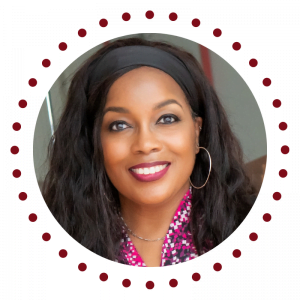
Want Karan to be Your Podcast Guest?
- Blended Workforces & the Gig Economy
- Critical Execution Tactics of High-performing Leaders
- Entrepreneurism & Leading Your Business

Want to be a Podcast Sponsor?
All sponsorships come with a featured spot on show notes pages.
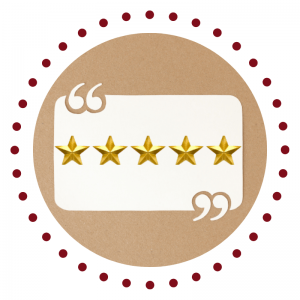
Like the Show? Please Leave a Review
If you like the show, it would mean the world to her if you left a quick review.
Your word is golden, so a HUGE thank you in advance!

#KeepInTouch
via our podcast alerts
Subscribe now to discover why thousands of monthly listeners who are passionate about doing their best work prioritize time each week to listen to the Blended Workforces @Work podcast.
#AboutSDL
#WhereToFindUs
MAILING
4480-H South Cobb Drive
PMB 219
Smyrna, GA 30080
PHYSICAL
2121 NewMarket Parkway
Ste. 108
Marietta, GA 30067
#ContactOptions
Customer Service Email:
service@shockinglydifferent.com
Call or Text:
770-384-1103
#Office Hours
MON-FRI
8:30 AM – 6:30 PM
Weekends By Appointment

